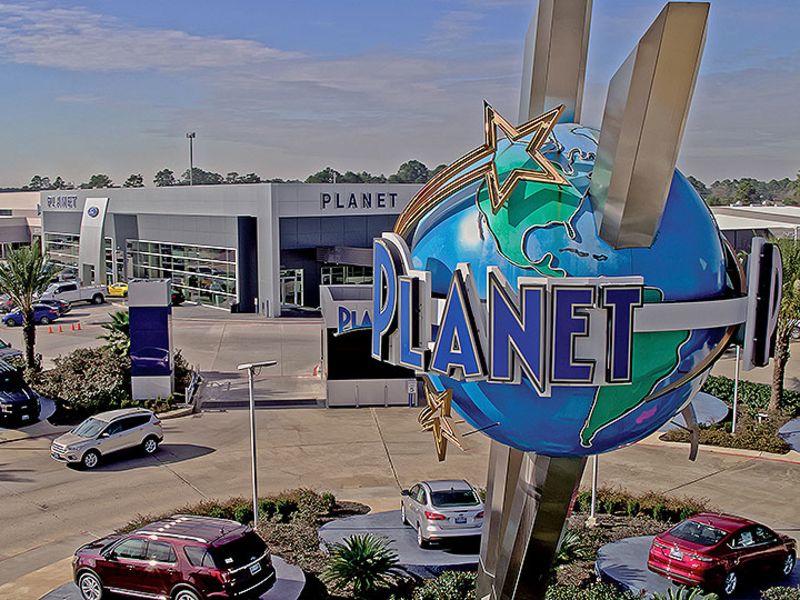
Many employees at Planet Ford-Lincoln in Spring, Texas, believe they are their co-workers’ keepers.
So much so that it led them to bankroll a stash of cash they call the Superfund. Employees can voluntarily contribute $10 per month, and those participants can withdraw funds during a personal financial crisis — think sickness, death or a significant other losing a job.
The money doesn’t have to be repaid, but the need must withstand the scrutiny of a panel of co-workers empowered to approve or deny a request.
Since its creation in 2003, the fund has returned more than $100,000 to participating employees facing troubles such as mortgage foreclosures, hurricane-damaged homes and medical emergencies. The largest single payout was $8,000 for funeral expenses, said Shawn Burns, Planet Ford-Lincoln’s general manager and operating partner.
Burns says the fund is welcome relief for participating workers who need it and satisfies employees’ desire to help others.
And though he can’t quantify it, Burns said he also believes the fund enhances dealership operations by boosting employee satisfaction and helping keep turnover low, which in turn keeps customer satisfaction high.
“It’s part of our DNA — a happy employee makes a happy customer,” he said. “It definitely contributes to our success.”
Burns declined to reveal how much money is in the fund but did say there is no limit to how much a participant can ask for or how many times they can apply for financial aid.
Planet Ford-Lincoln retails about 8,500 vehicles a year, of which 65 percent are new and 35 percent are used. It is part of dealer Randall Reed’s World Class Automotive Group that operates seven Ford and Lincoln dealerships in Texas. The fund program is exclusive to the store operated by Burns.
Though the Superfund is a group effort, Burns came up with the idea after noticing that employees would regularly ask co-workers whether they wanted to chip in to help colleagues in crisis.
“Instead of going to the people we knew who were probably going to give, we brought it to all employees,” he said. “With almost 300 employees, people are going to have catastrophic events, and unforeseen circumstances are going to happen.”
About half of the dealership’s 291 employees participate, said Burns, himself a participant.
Employees donate through payroll deduction. Those paid weekly see a $2.50 deduction per paycheck, and it’s $5 per check for those paid semimonthly.
To make a withdrawal, participants submit written requests with supporting documentation to the dealership’s human resources manager, who is the only person who knows the identity of the employee making the request.
After being stripped of obvious identifying information, the request is sent to a five-person committee and includes the employee’s hire date and salary.
Committee members are rank-and-file employees who have earned Employee of the Month recognition for their leadership and decision-making skills. They are also fund participants. The current committee has been in place for about two years, and its members each have worked at the dealership for 10 to 12 years. The membership is refreshed from time to time, but not on a regular timetable, Burns said.
The committee considers every request on its merits, Burns said. Members vote, and the majority rules.
Burns says the fund typically receives three to five requests per year, each seeking a few hundred to a few thousand dollars.
“We never give the money directly to an employee,” he said. “When the committee decided to pay for the funeral, we paid it directly to the funeral home.”
Some requests are turned down.
For example, a salesperson who made “really good money two months in a row,” followed by a month of making not-so-good money, was turned down upon seeking money to cover rent.
Said Burns: “If you mismanage your money, the committee is going to figure that out.”

